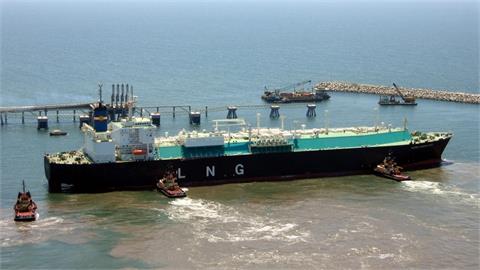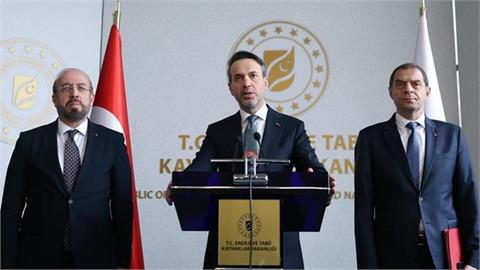Greece’s business climate has worsened as bailout talks between the
leftwing Syriza-led government and the country’s creditors drag on, prompting
fears of a Greek debt default and,
possibly, a Grexit from the euro.
But life — and commerce — go on. The profiles below illustrate how four businesses are coping with the uncertainty surrounding Greece’s future in the eurozone.
The oil explorer
Day-to-day activity at Energean, a privately owned Greek oil producer which pumps 1,800 barrels a day from a platform in the north Aegean Sea, carries on as if nothing had changed in Athens.
A recently acquired drilling rig, refurbished at a Greek shipyard, is due to start exploring next month for new oil deposits in Energean’s offshore concession.
But the company’s plans for strategic partnerships with international oil companies are on hold because of political constraints, according to Matthaios Rigas, the chief executive.
"Without liquidity in the system provided by the banks and a clear message that Greece will remain in the eurozone, without consensus by all political parties that strategic areas such as tourism, shipping or exploitation of natural resources will remain unaffected by political changes, the business climate will remain negative,” Mr Rigas said.
Energean’s shareholders, among them the US hedge fund Third Point, had to finance the company’s current €200m investment plan because of reluctance by international investors and banks to back Greek companies and Greek-related projects, he added.
With 30m barrels of proven and probable reserves in its Aegean concession, two exploration licences in western Greece and bids pending for others off Montenegro, Energean can wait for the storm to pass.
"There’s no appetite for Greek risk at the moment but this can quickly change once stability returns,” Mr Rigas said.
The hotelier
Andreas Andreadis was looking forward to another 5 per cent increase in tourist arrivals this summer after a record 24m visitors to Greece in 2014.
But bookings have tailed off amid concerns that Athens may soon be forced by its creditors to impose capital controls, which could affect holidaymakers as well as Greeks.
"The main worry, especially in Germany, is that tourists will arrive on an island and find the bank cash machines empty,” said Mr Andreadis, chief executive of the Sani hotel group and president of Sete, a Greek tourist industry association.
The prevailing uncertainty has already slowed Mr Andreadis’s ambitious plans for expansion. The Sani group teamed up with Oaktree Capital, a private equity fund that planned to invest €500m in transforming a dozen lossmaking family-run Greek hotels into all-inclusive luxury resorts.
A proposal at the bailout talks to double valued added tax on accommodation from 6.5 per cent to 13 per cent has triggered fears that Greece would lose a big chunk of sun-and-sea tourism to its Mediterranean rivals, Turkey and Croatia.
"We’re operating two new properties this season but if the VAT increase for accommodation goes through, we’ll have to review the next move since Greece won’t be competitive in the east Mediterranean market,” Mr Andreadis said.

The olive oil producer
Terra Creta, an award-winning producer of extra-virgin olive oil, marked the end of Greece’s six-year recession by splashing out €300,000 on a second bottling line at its processing plant on the island of Crete.
The company, which is owned by three local entrepreneurs, made profits during the crisis by switching to exports, selling more than 90 per cent of its output abroad.
Sales of Terra Creta’s branded olive oils were projected to double this year to 3,000 tonnes, partly thanks to increased global demand for high-quality Greek oil following widespread crop failures in Spain and Italy.
But its prospects are once again clouded by uncertainty.
"The worst of what we face is keeping the trust of our clients abroad,” said Constantine Angelopoulos, Terra Creta’s general manager. "Instead of asking about quality and prices, it’s about whether we’ll be continuing in business the day after [Greece leaves the euro].”
"Clients in China even said they won’t be able to work with us if we’re no longer a euro member state,” he added.
Greece’s worsening liquidity squeeze means cash is tight. The Syriza-led government has frozen repayments of value added tax to exporters, while local banks have shrunk lending.
"We had to become self-financing to be able to pay 800 olive farmers cash on delivery,” Mr Angelopoulos said.
The contractor
Work on five toll highway projects across Greece worth almost €4bn will grind to a halt in the next few weeks unless the Syriza-led government stops delaying a €250m payment due to local and foreign construction companies.
Almost 10,000 jobs created when the road projects were relaunched two years ago with increased EU funding could be at risk if the government continues to divert infrastructure funds to pay pensions and civil servants’ salaries.
The construction companies depend on regular injections of funding from the public investment budget to cover their cash flow needs, according to George Sirianos, a senior executive at Hellaktor, one of Greece’s three biggest contractors, and president of Steat, an association representing large Greek construction companies carrying out state-funded public works.
"Because of liquidity problems in the banking system contractors are badly squeezed . . . For example, because of [perceptions of] Greek risk we have to pre-pay for specialised material imported from abroad,” said Mr Sirianos.
Several smaller EU-funded construction projects, including five solid waste treatment plants worth €150m to serve the densely populated Attica region around Athens, have been cancelled by Syriza officials and will be retendered.
"Our hope is that once the government achieves an agreement with the EU and the International Monetary Fund and bailout aid resumes flowing, the situation will quickly return to normal,” Mr Sirianos said.
(Financial Times )



